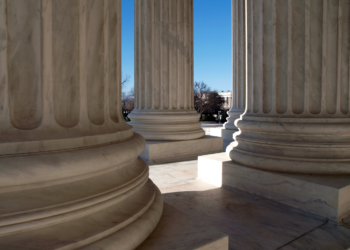Recently, law schools have come under intense pressure to raise first-time bar pass rates. In response, law schools are raising incoming credentials by requiring a higher LSAT score for admission. For example, at Florida Coastal we have raised our LSAT scores by five points and plan to raise them by two more next year.
By itself, this will raise bar pass rates. But it will also exacerbate racial inequality in the legal profession (which is just 12 percent diverse) because the LSAT is not race neutral. Using LSAT in this way, despite its effect on diversity, might be explainable (although not justifiable), if it was a strong predictor of success. But it isn’t.
Given that everyone in legal education knows this, why raise standards in this way? Because everyone also knows that higher LSATs translate (three years later) into higher bar pass rates.The assumption is that higher LSAT scores works because it improves quality of the class.
In reality, at least part of the reason, bar pass rates go up is because raising LSAT scores plays into racial bias in the bar exam. By using a racially biased test (the LSAT), we admit a racially distorted population that is then more likely to pass a subsequent racially biased test (the bar exam).
You might think that the bar exam is an objective, anonymous test, that can’t be racially biased.That is incorrect.
After checking all state bar sites, I could only find one (California) that lists results by race.Those results demonstrate a racially differentiated effect. For example, in February 2016 the California first time pass rates, for graduates from ABA accredited schools, are 55 percent for Whites, 25.6 percent for Blacks, 32.5 percent for Hispanics, and 37.4 percent for Asians. (The failure of any other state bars to post this information implies that these types of results are common.)
So, let’s pull this all together with an example.
Start by setting a checkpoint where no one with an LSAT score below 150 is admitted to law school. (Law school critics like Law School Transparency contend that anyone with an LSAT score below 149 is at “high risk” of failing the bar.The implication of “high risk” of failure, is that we should not admit such students.)This 150 checkpoint produces an entering class with 15.5 percent fewer Asians, 50 percent fewer Blacks, and 48 percent fewer Hispanics, but 8.2 percent more Whites than we would expect given the proportion of 25-34 year olds with a four-year degree.
Let’s now combine the 150 checkpoint and the California bar pass rates to see how this raises bar pass rates, by playing to inherent racial bias in our society.
If we start with 100 applicants who match the racial demographics of 25 to 34 year olds with a bachelor’s degree, then we get a 48.5 percent pass rate. (See Table 1)
If we add the 150 checkpoint, then we have a pass rate of 50.5 percent. (See Table 2)
So, simply by changing the racial demographics of the entering class and playing into the systematic racism of our society, you increase bar pass rates.
As a law school dean, I cannot fix systematic racism in our society. But I can help work the problem as it plays out in legal education by reframing the problem and calling for action.
Here is the action I recommend. Put some sunlight on the problem. Let us require every state bar to release its bar pass statistics by race.This won’t solve the problem but it will bring it out of the shadows and give us an opportunity to work together to solve the problem.
Failing to squarely face the diversity problem in the legal profession is not an option, because doing so will create a profession and legal system that is closed to Blacks, Asians, American Indians, and Hispanics, who will justifiably feel excluded from the very profession that should be safeguarding them. Scott DeVito







